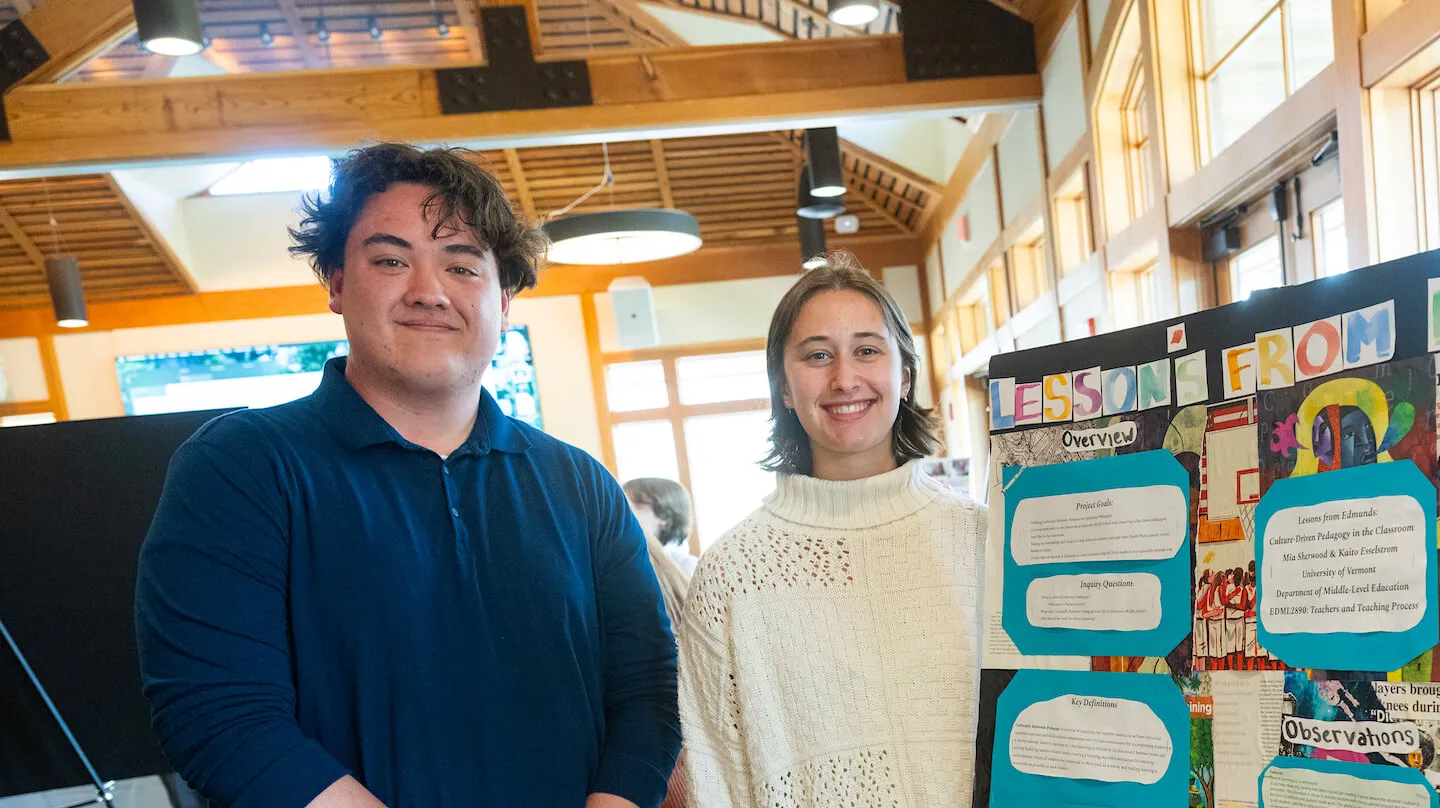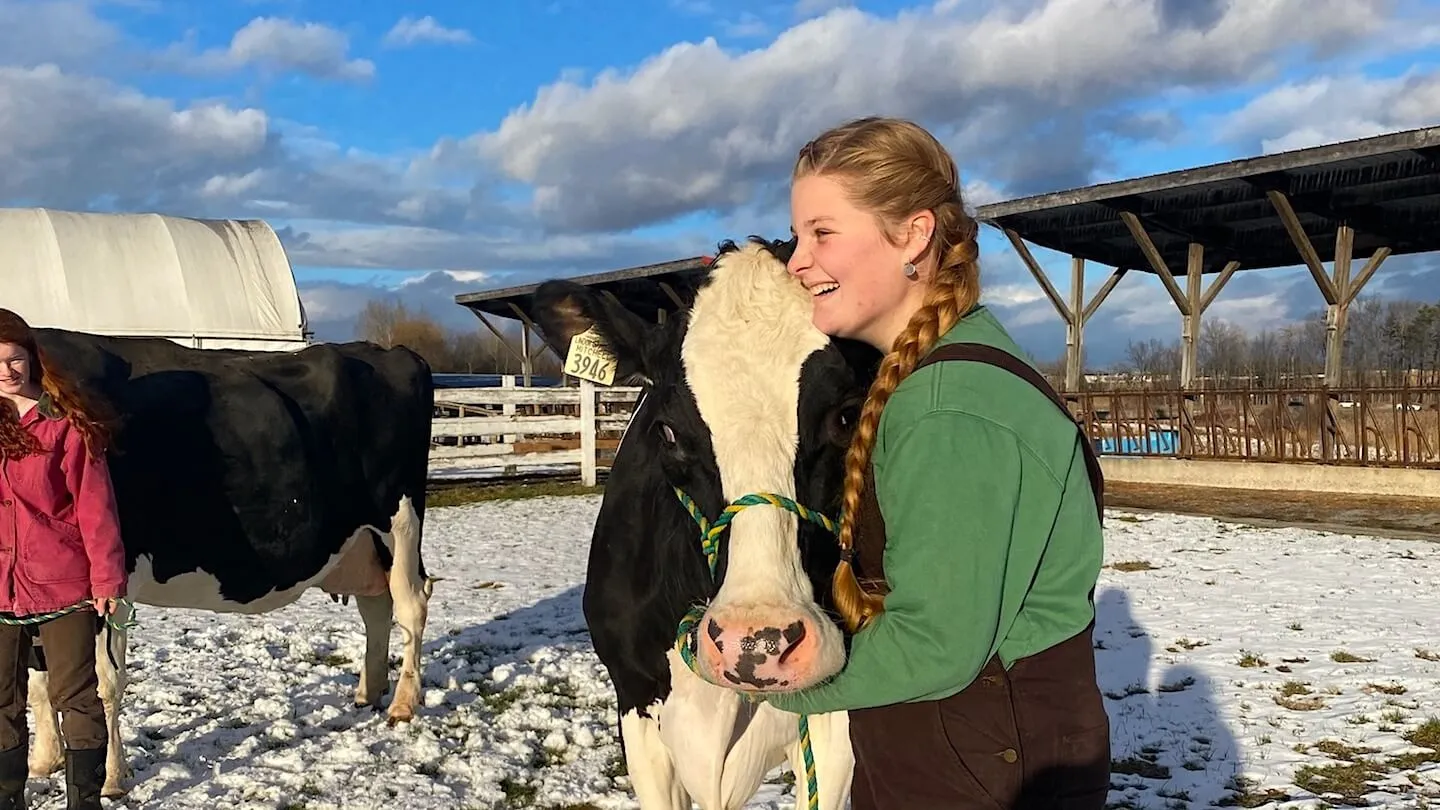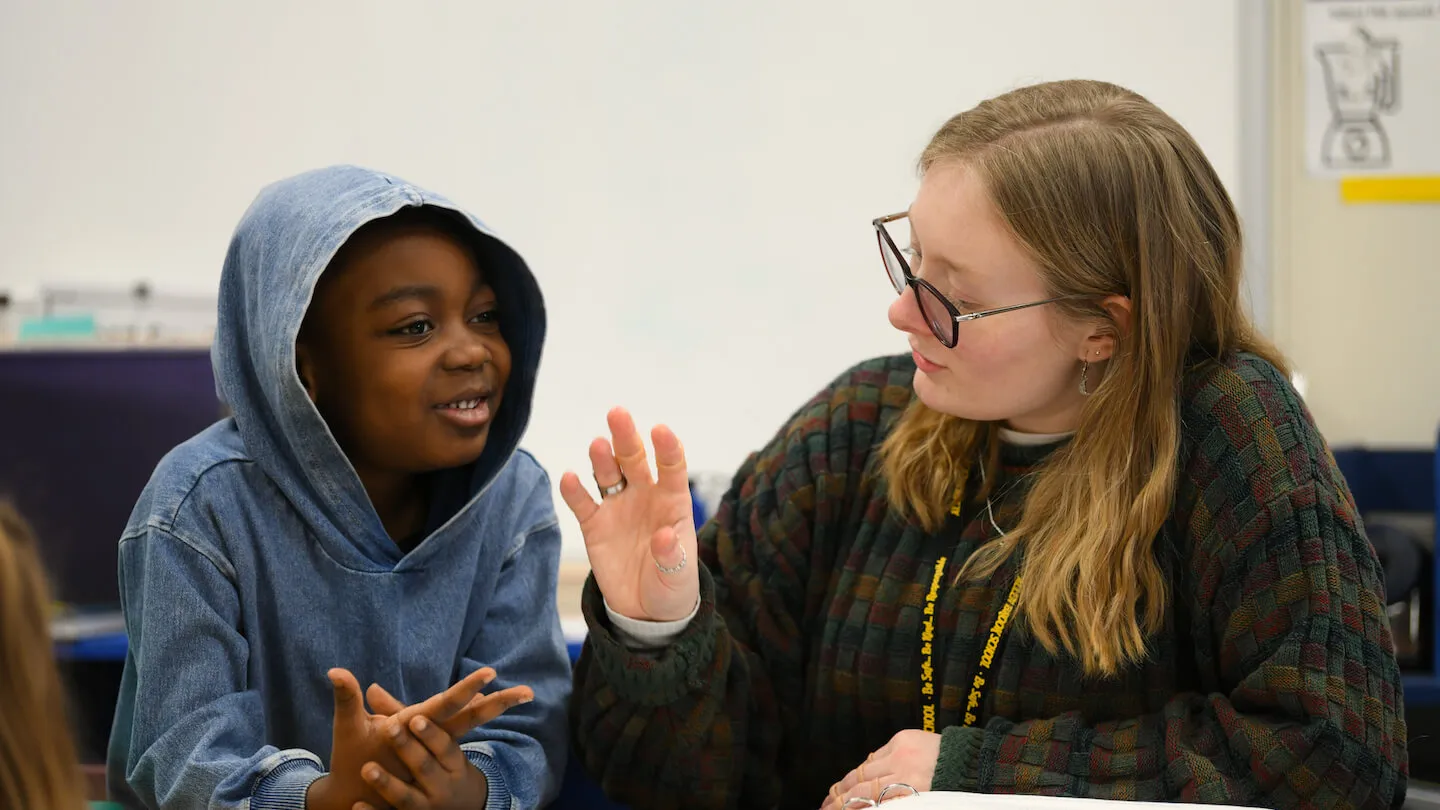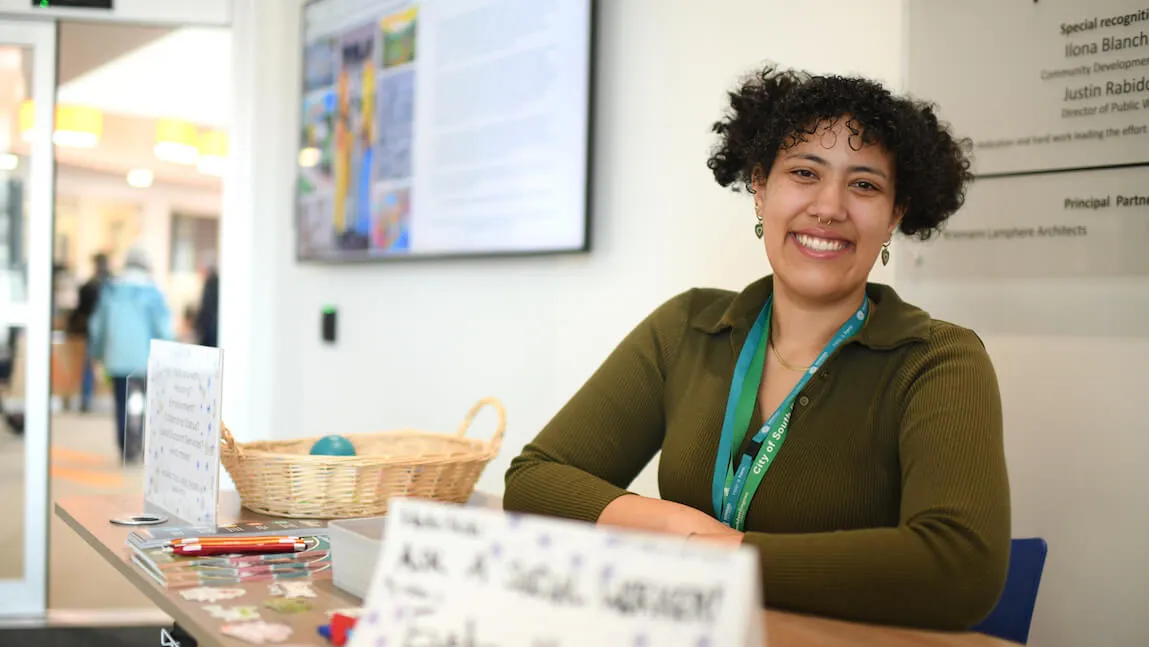Offering 22 courses with such designations, the College of Education and Social Services was represented proudly by undergraduates Kaito Esselstrom, Mia Sherwood, and faculty member Kathleen Brinegar.
“Service-learning is all about taking what you’ve learned in the classroom and using it to help people,” explains Esselstrom, a junior in the Middle Level Education program.
As students in Brinegar’s course, Esselstrom and Sherwood showcased their experiences in partnership with Edmunds Middle School in Burlington. Later in the event, Brinegar received with the Outstanding New Community-Engaged Learning Faculty Award.
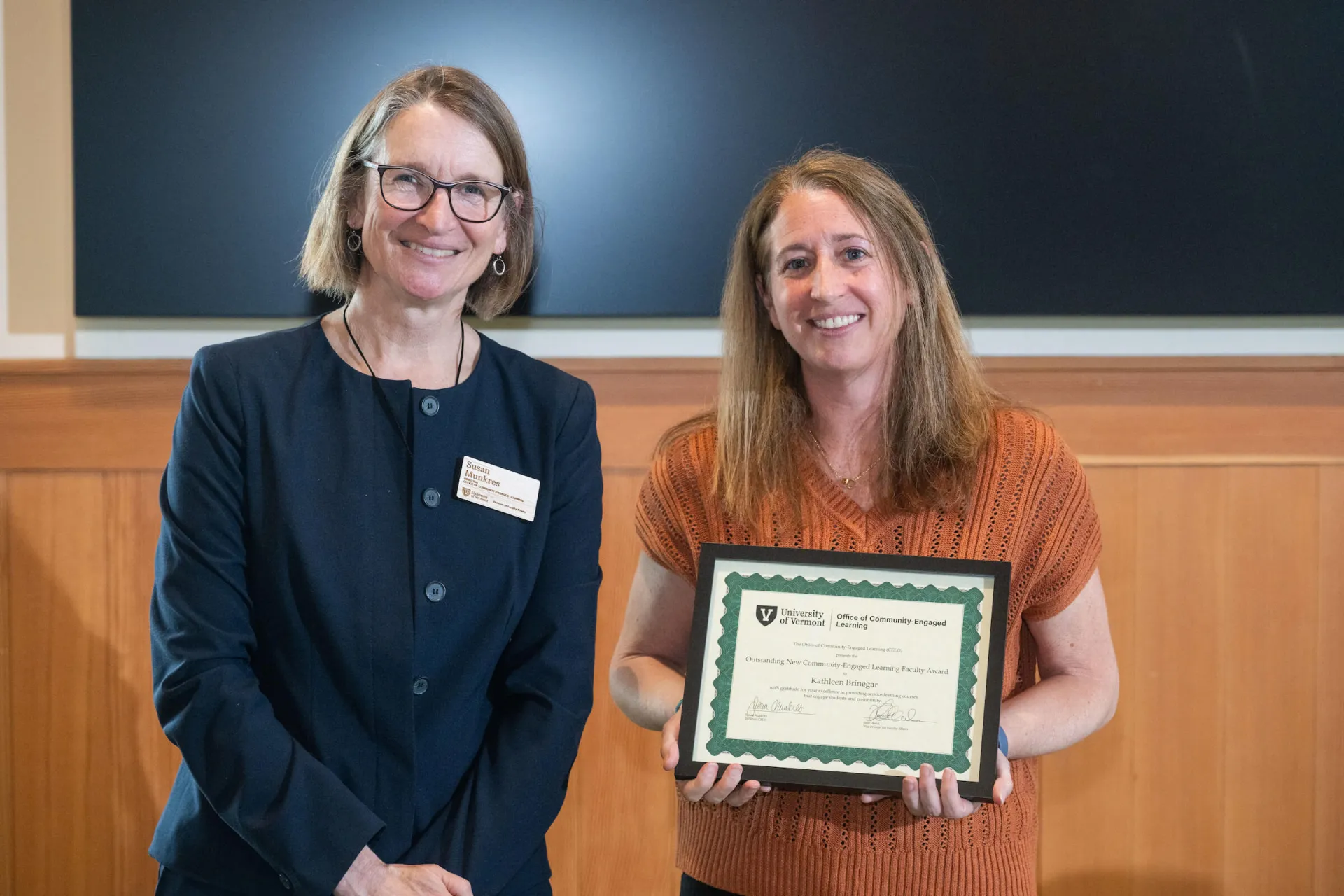
The celebration was hosted by UVM’s Office of Community-Engaged Learning (CELO), a team dedicated to enhancing the quality and breadth of civic- and service-learning courses across the University.
Presenting a poster titled “Culturally Sustaining Middle-Grades Education,” Esselstrom and Sherwood described how they partnered with middle-school students and teachers in Youth Participatory Action Research (YPAR).
“I had no idea what YPAR was before the first day of class,” Esselstrom admits. “Students investigate the problems of concern they see in their community. To see the incredible work they’ve done, just as seventh and eighth graders, is inspiring.”
“It’s one thing to be taught about culturally sustaining pedagogy, but it’s a totally different thing to see it in action,” says Sherwood.
The middle schoolers had developed a rubric to evaluate their teachers’ efforts to support a wide range of students. Esselstrom, Sherwood, and their UVM classmates observed and evaluated teacher volunteers using the rubric.
This service benefits the middle school students’ sense of belonging, the teachers’ professional impact, and the UVM students’ pre-professional training.
“The rubric is a tool I can use to hold myself accountable as a teacher in the future,” reflects Sherwood. “You won’t always hit all the checks every day, but it’s important to constantly adapt to your students’ needs.”
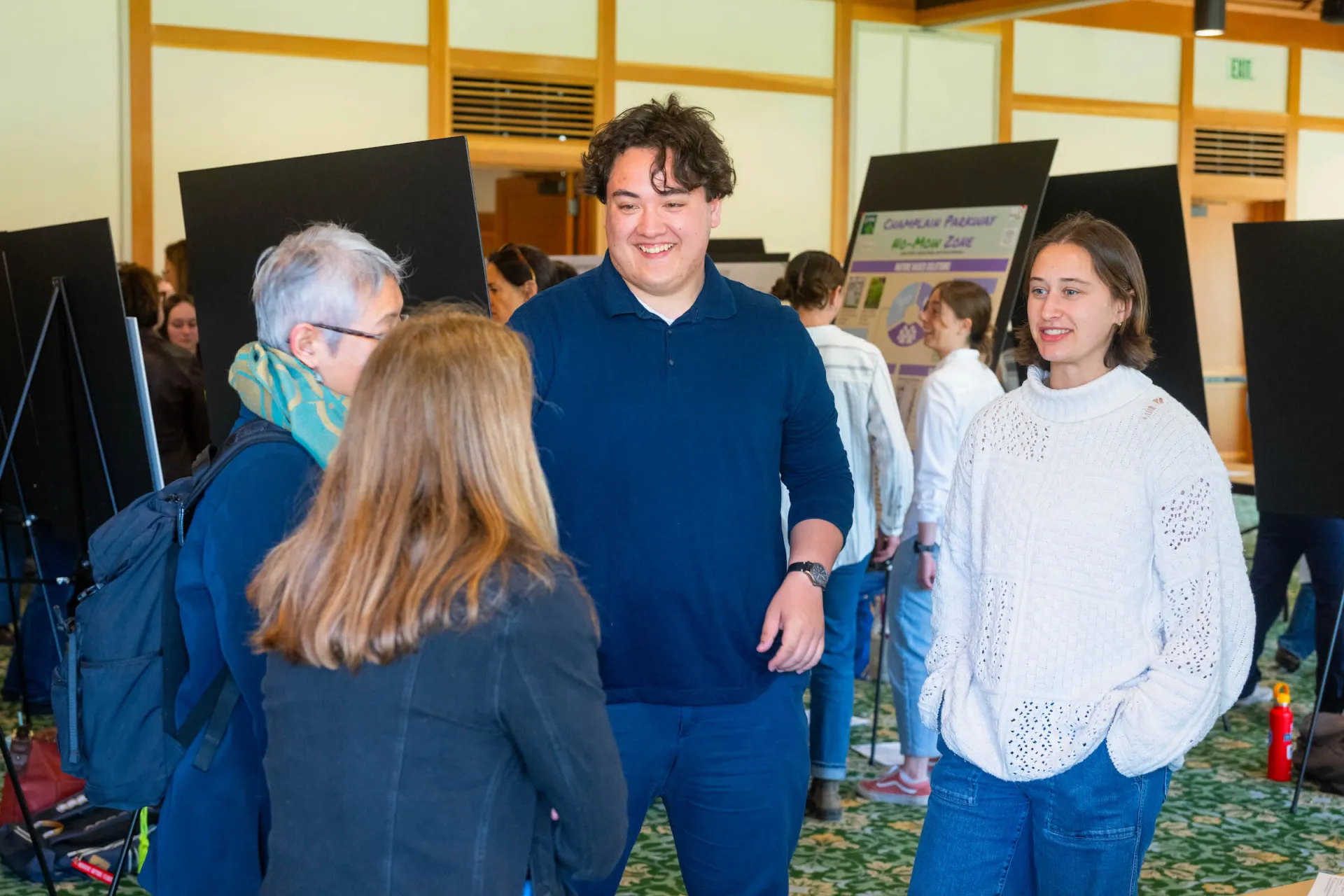
The Showcase of Community-Engaged Learning is interdisciplinary. Esselstrom and Sherwood were surrounded by peers whose service- and civic-learning courses ranged from Restoration Ecology to Community Media Production, presenting projects like Middlesex Flood Resilience Design and Latin American Asylum Case Research.
Following the student showcase, CELO presented awards to faculty for their exceptional community engagement. Although Brinegar has practiced community-engaged pedagogy for many years, she trained as a CELO Faculty Fellow in 2023. The fellowship includes facilitated discussions and workshops with faculty from across disciplines, ultimately resulting in an innovative service- or civic-learning course.
Since Fall 2023, Brinegar introduced three high-impact courses in the Middle-Level Education program with the civic-learning or service-learning designation from CELO. Reflected on a student’s transcript, this designation is reserved for courses that include meaningful engagement and intentional partnership with communities. Courses focus on addressing real-world problems by mobilizing the University’s most creative and impactful resource – our students.
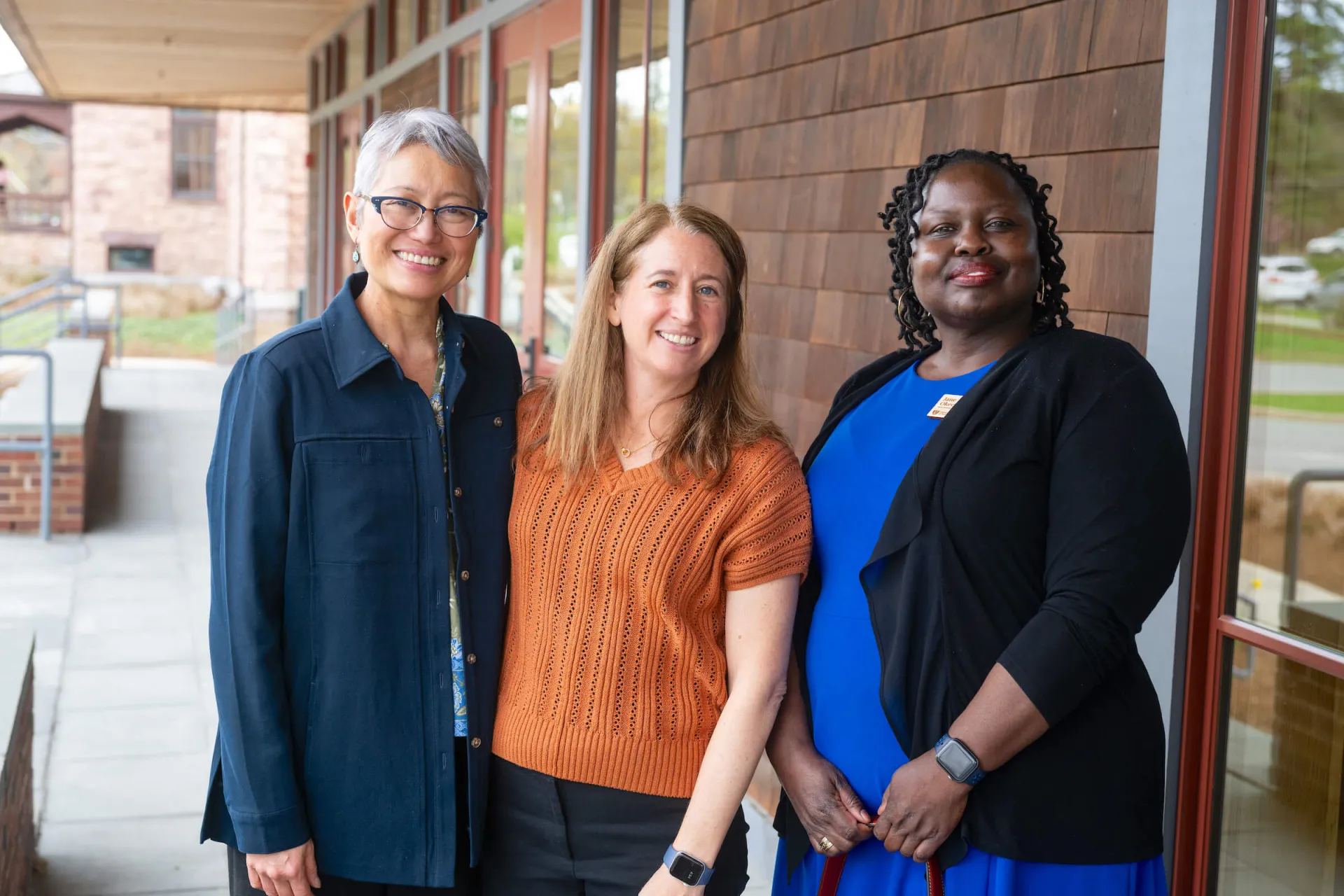
“We can’t learn how to enact educational justice in isolation of actual school, outside of actual humans,” says Brinegar, “so luckily I’ve been able to partner with great organizations and schools and educators.”
Students like Sherwood and Esselstrom finished the course, Teachers & the Teaching Process, with a richer understanding of the Burlington community and of their own professional skillset.
CELO Director Susan Munkres delivered Brinegar’s award for Outstanding New Community-Engaged Learning Faculty. Speaking on behalf of herself and the CELO Advisory Committee, Munkres described how they were “deeply impressed with Kathleen’s thoughtful approach to student experience and attention to the needs to marginalized populations of student learners – both at UVM and in the schools in which our students work.”
Brinegar joins previous CESS faculty awardees including Lauren MacKillop, Nicole Conroy, and Suzy Comerford.
By participating in this community-engaged course, Brinegar says, “everyone gets to learn that there’s more than one way to enact culturally sustaining pedagogies.” Esselstrom will begin his student teaching internship next year and looks forward to applying this learning.
